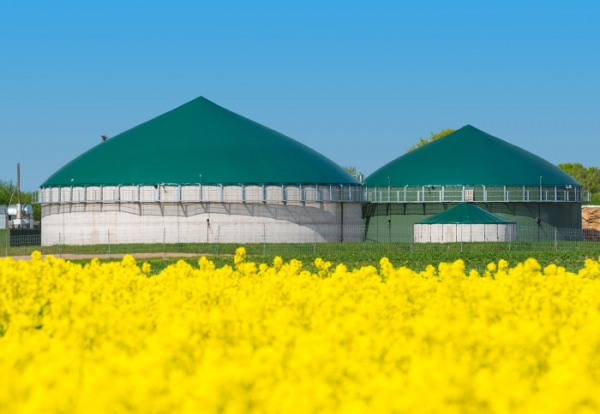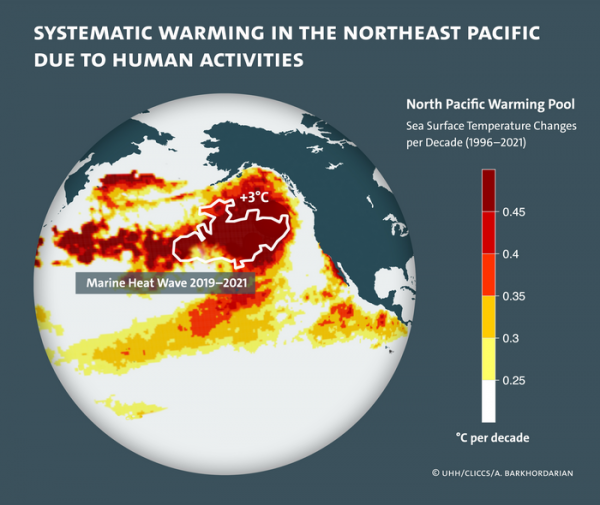

A long-term, increasingly warming pool of water in the northeast Pacific was recently discovered by a team of researchers from the University of Hamburg’s Cluster of Excellence CLICCS.
The pool in the ocean measures three million square kilometers resulting from increased anthropogenic greenhouse-gas emissions.
In a study just released in the journal Nature Communications Earth and Environment, Dr. Armineh Barkhordarian who is a professor states that this rapid warming pool is not the result of natural climatic variations. This is because of human influences instead. “This warming pool will continue to increase the water temperature in the future, increasing both the frequency and intensity of local marine heatwaves. “The sharp increase in average water temperature is pushing ecosystems to their limits,” explains Barkhordarian, an expert on atmospheric science and member of Universität Hamburg’s Cluster of Excellence “Climate, Climatic Change, and Society”
Heatwaves are causing parts of the ocean to warm up rapidly! This is causing the coral to die and is slowly waking the ocean habitat! We know how important coral is! So let’s save our oceans from danger before it is too late!
Author: Sri Nihal Tammana
Source: University of Hamburg
PC: UHH/CLICCS/A. Barkhordarian


© copyright 2022 by Recycle My Battery